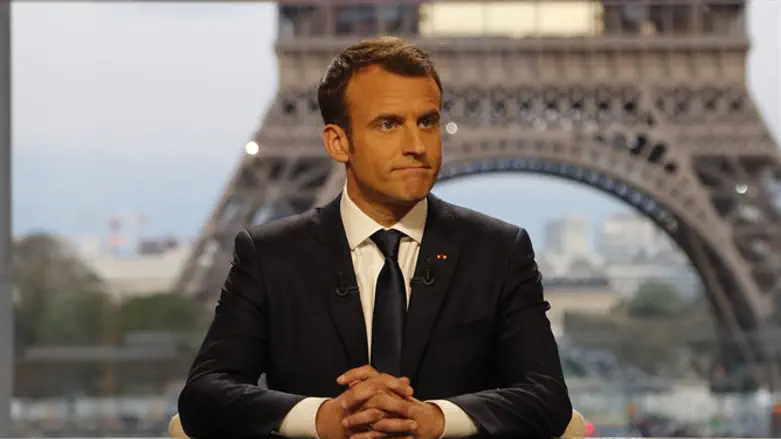
French President Emmanuel Macron on Wednesday ordered a nighttime curfew for Paris and eight other cities to contain the spread of COVID-19 after daily new infection rates reached alarming record levels.
Speaking during a televised interview and quoted by AFP, Macron said residents of those cities -- which combined are home to close to a third of the French population -- would not be allowed to be outdoors between 9:00 p.m. and 6:00 a.m. from Saturday, for a duration of at least four weeks, except for essential reasons.
"We have to act. We need to put a brake on the spread of the virus," he said, adding the measure would stop people visiting restaurants and private homes in the late evening and night.
"We are going to have to deal with this virus until at least the summer of 2021," Macron continued, saying "all scientists" were in agreement on that point.
He said new daily coronavirus cases must be brought down to "3,000 or 5,000", from current levels, which have reached up to almost 27,000.
In addition to Paris and its region, Grenoble, Lille, Lyon, Marseille, Montpellier, Rouen, Saint-Etienne and Toulouse were being targeted by the measures, Macron said. That meant that around 20 million people would be affected out of a total population of some 67 million.
"We won't be leaving the restaurant after 9:00 p.m.," Macron said. "We won't be partying with friends because we know that that's where the contamination risk is greatest."
Macron acknowledged the measure was hard on young people, but that the health crisis left little choice. "It's hard to be 20 in 2020," he said.
He urged people to limit gatherings in their homes to six people, and to wear protective masks on such occasions.
Anyone found to be outdoors during the curfew without special authorization would face a fine of 135 euros ($159), and more than 10 times that sum for repeat offenders, Macron said.
"We are in a worrying situation," Macron said, while insisting France had not "lost control" of the virus and a second full lockdown, like the two-month measure earlier this year, would be "disproportionate".
Earlier Wednesday, the French government re-imposed a national state of health emergency to allow "measures proportional to the health risks to be taken".
France was facing "a health catastrophe", according to the minutes from a cabinet meeting.
In recent days, many countries in Europe have declared new emergency measures in an attempt to stem the spread of the coronavirus, following record numbers of new cases of the virus.
On Tuesday, Dutch Prime Minister Mark Rutte announced that the Netherlands will go into "partial lockdown" to curb one of Europe's biggest coronavirus surges.
The new restrictions include orders for all bars, cafes and restaurants to close. The sale of alcohol and cannabis will also be banned after 8:00 p.m. in a bid to reduce the social contacts that have led to the rise in COVID-19 cases, Rutte said of the steps.
